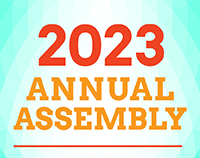
Assembly Highlight - Demystifying Limited Code: Standardizing Resuscitation Options in a Large Healthcare System
*This recording is repurposed from the 2023 Annual Assembly
The Palliative Care (PC) team identified a need for standardized definitions for resuscitation in clinical practice. The Electronic Health Record (EHR) offered 14 options under Limited Code, leading to confusion with potential for futile or undesired resuscitation attempts. The PC team utilized change theories to address this issue in a large healthcare system. This large system included 17 hospitals, over 21,000 caregivers, and more than 100 physician clinics span. There is a lack of evidence in standardizing Limited Code orders in clinical practice. The PC team assessed the opportunity for change by analyzing case occurrence reports. Using Havelock’s theory of change, the PC team began with a determination of key interdisciplinary stakeholders. Collaborative meetings were held with team leads from critical care medicine, education, informatics, quality, safety, and legal. Buy-in was obtained and open dialogue occurred to determine appropriate resuscitation options with implementation strategies. These standardized definitions were elevated through multiple levels of review. Following policy approval, the PC team then led EHR modifications and developed educational materials for clinicians throughout the system. The Limited Code order was clearly delineated to a single, universal definition. Informal feedback from stakeholders and direct care clinicians was positive and accepting of the change. The modifications to the EHR were completed and as part of change theory, monitoring of the revisions is ongoing with retrospective chart reviews. All patients, regardless of health literacy or socioeconomic background, should be able to choose a medically sound code status in line with their wishes.
Target Audience
Hospice Medical Directors
HPM Physicians
Nurses
Nurse Practitioners
Pharmacists
PAs
Learning Outcomes
1. Understand change theories and a process of standardizing resuscitation orders to implement system wide practice change
2. Drive change through interdisciplinary collaboration to improve informed consent and reduce misunderstandings that can lead to delays in care and futile or undesired medical care
Disclosures
AAHPM endorses the Accreditation Council for Continuing Medical Education (ACCME) Standards for disclosure and commercial support and endeavors to ensure balance, independence, objectivity, and scientific rigor for all accredited products or programs. All who are in a position to control or influence the content of an educational activity must disclose any relevant financial relationships with ineligible companies.*Disclosure documents were reviewed for potential conflicts of interest and, if identified, were resolved prior to confirmation of participation. Only those who had no conflict of interest or who agreed to an identified resolution process prior to their participation were involved in this activity.
All editors, faculty and staff have disclosed no relevant financial relationships.
*An ineligible company is defined as any entity producing, marketing, reselling, or distributing healthcare goods or services consumed by, or used on, patients.
Faculty
Rachel Sabolish, AGNP-C ACHPN - Lead Faculty
Lauren Pennartz, FNP-C ACHPN
Staff
Leah Farfan, BA
Julie Tanner, BSN RN-BC CHPN
Angie Tryfonopoulos, BS
Theresa Nissen, BA
Laura Witt, MS-HSM
Julie Bruno, MSW LCSW
This recorded activity is a non-accredited learning resource. No CME or MOC is offered with this activity.

 Facebook
Facebook X
X LinkedIn
LinkedIn Forward
Forward